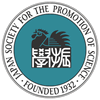
General Information
Climate and Weather
Ise-Shima’s climate is mild all year round. The average temperature in June is around 25℃. As the rainy season usually starts about mid-June and lasts about a month, it may be humid and raining a lot.Tipping
There is no custom of tipping in Japan. People generally do not tip waitresses, taxi-drivers, etc.
Electricity
In Japan, the electrical power supply to households is at 100V and Ise-Shima operates at 60Hz. If you want to use electric appliances which you brought in from your country, please check its compatibility in the appliances instruction manual. Please note that there are no columnar-shaped plugs or 3-pin plugs used in Japan but 2-flat-pin plugs are used instead.
Monetary Information
Japanese Bills and Coins
The Japanese currency unit is the Japanese Yen (JPY). There are four denominations of bills: 10,000 yen, 5,000 yen, 2,000 yen, and 1,000 yen. There are also six denominations of coins: 500 yen, 100 yen, 50 yen, 10 yen, 5 yen, and 1 yen. In Japan, all of the bills and coins are in different sizes and the general rule is that the bigger the bill or coin, the larger its value is. For example, the bills descend in size from 10,000 Yen to 1,000 Yen. In addition, Japanese currency is designed to facilitate easy use by people with sight impairments.
Traveler’s Checks and Credit Cards
Traveler’s checks and some foreign currencies can be used as a means of payment only at some large hotels. Most stores, restaurants and other businesses accept only Japanese yen in cash. The same is true for credit cards. Most businesses, including taxis, do not accept credit cards. Thus, carrying Japanese yen in cash is highly recommended. You can withdraw Japanese Yen using major international cards ATMs at the post offices or on seven bank ATMs at seven-eleven convenience stores. Please be aware that most ATMs in Japan are not open for 24 hours a day
Foreign Currency Exchanges
U.S. Dollars to Japanese Yen exchange is available at head and branch offices of most banks in Ise-Shima. Other currency exchange may be available at Central Japan International Airport (Centrair) and major banks. Please consult the information desk further information.
All of Japan is in the same time zone,
9 hours ahead of G.M.T. No Daylight Saving Time is practiced in Japan.
Shown below is a list of time differences between Japan and other major international cities.
America |
|
Sao Paulo |
-12 hrs |
Toronto |
-14 hrs |
New York |
-14 hrs |
Chicago |
-15 hrs |
Mexico City |
-15 hrs |
Los Angeles |
-17 hrs |
Asia & Oceania |
|
Sydney |
+1 hr |
Seoul |
0 hr |
Hong Kong |
-1 hr |
Beijing |
-1 hr |
Singapore |
-1 hr |
Bangkok |
-2 hrs |
Jakarta |
-2 hrs |
Europe |
|
Moscow |
-6 hrs |
Frankfurt |
-8 hrs |
Geneva |
-8 hrs |
Paris |
-8 hrs |
London |
-9 hrs |
Drinking water
Tap water is safe to drink anywhere in Japan. Mineral water including major imported brands can be easily obtained from super markets, convenience stores and other similar places.
Business Hours
|
Weekdays |
Sat. |
Sun. & National Holidays |
Banks |
09:00-15:00 |
closed |
closed |
Post Offices |
09:00-17:00 |
closed |
closed |
Dept. Stores |
10:00-20:00 |
10:00-20:00 |
10:00-19:30 |
Shops |
10:00-20:00 |
10:00-20:00 |
10:00-20:00 |
Museums |
10:00-17:00 |
10:00-17:00 |
10:00-17:00 |
Offices |
09:00-17:00 |
closed |
closed |
Some main post offices are open seven days a week.
Most department stores are closed for two to three weekdays a month.
Most museums are closed on Mondays.





























